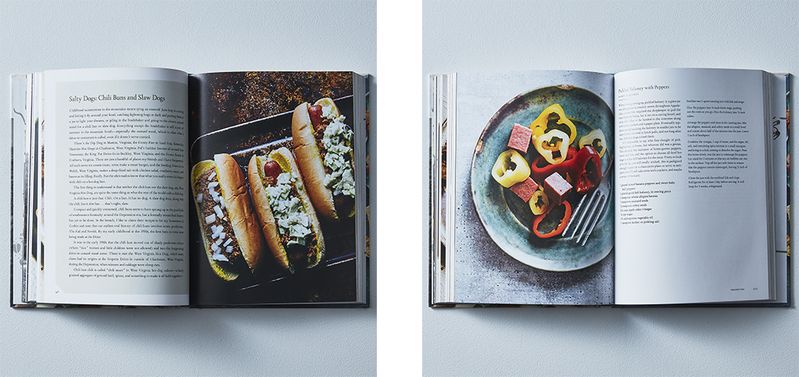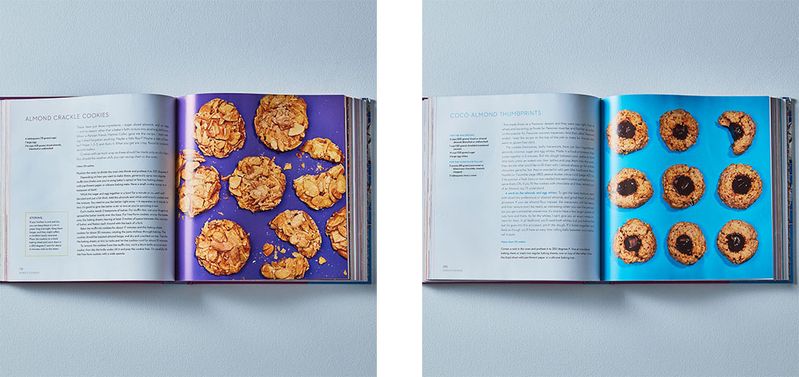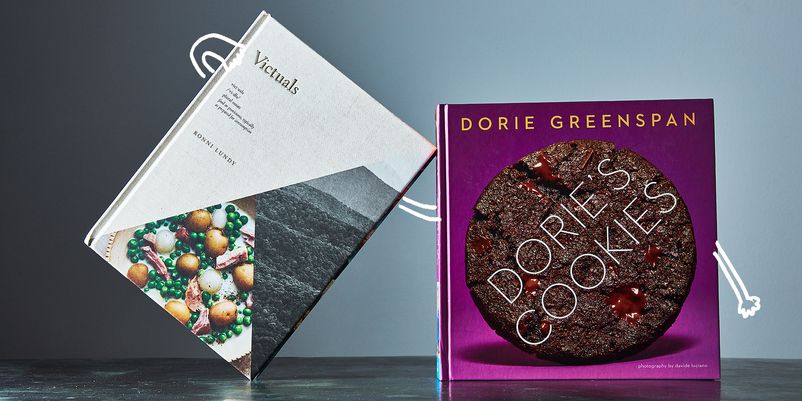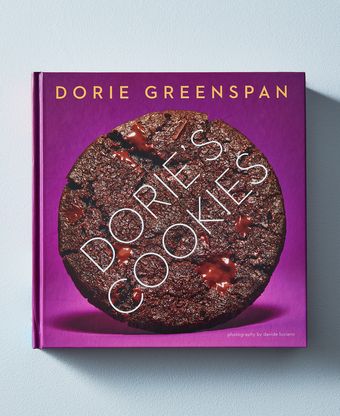The only way to eat cherries, Gogol said, is to stuff about twenty in your mouth at once. That’s how, growing up in West Virginia, I ate my paternal grandmother’s string beans. I could get more of them onto a fork than you might think possible.
Like all West Virginia cooks I know, she made them in a pressure cooker, along with a strip or two of bacon. The results were tender and porky and ambrosial. I came to regret eating so many at once. My grandfather was a devotee of Horace Fletcher (1849-1919), the health food maniac known as “the great masticator.” Fletcher believed you should chew each bite of food 32 times. So did, on some days, my grandfather. It was a good way, at the dinner table, to make one regret an otherwise perfect bite of twenty string beans.
My grandmother’s string beans came back to me while reading Ronni Lundy’s wise and soulful new cookbook Victuals: An Appalachian Journey, with Recipes. This is a volume that covers the food and traditions of a variety of southern mountain states, not just West Virginia but Kentucky, southern Ohio, northern Georgia, North Carolina, Tennessee, and Virginia. But I couldn’t help but read it through the lens of my own childhood. (Lundy boils her green beans for an hour, then adds new potatoes and boils some more.) It brought back memories, in the best way. As I watched her take note of so many new chefs and restaurants from the region, it also made me think about how far Appalachian food has come. The blurb on the inside front cover from Roy Blount, Jr.—he’s the wiliest book-blurber America has ever produced, and I mean that as praise—speaks for me. It reads: “Mmmmm.”
Lundy is a cookbook writer whose previous books include Shuck Beans, Stack Cakes, and Honest Fried Chicken. She’s a founder of the Southern Foodways Alliance and a two-time finalist for a James Beard Award. And she traveled for the recipes in this book: “To gather them, I drove over four thousand miles—zigzag on switchbacks, straight along ridgelines, weaving and loping through valleys, dark and light.” She made it back alive, with some toothsome recipes in tow.

It’s been said that the only regional dish, if you can call it a dish, that West Virginia has introduced to the world is the pepperoni roll, a tasty one-handed miner’s lunch made by baking a stick of pepperoni inside yeasted bread dough; Lundy includes a solid recipe for those. She has a terrific recipe for pickled bologna with banana peppers, though she spells it “baloney,” which I’m on the fence about. This reminded me that the most satisfying sandwich of my youth, as introduced to me by my father, was a fried bologna sandwich. In his memoir Colored People, Henry Louis Gates, Jr., who was born in Keyser, West Virginia, writes with ardor about fried slices of a defunct brand called Dent Davis’ bologna, which to my regret I never tasted.
This book has a recipe, from the Palisades Restaurant in Eggleston, Virginia, for a hominy salad with tomato vinaigrette that’s topped with popcorn that’s been sprinkled with paprika and other spices. It’s got a stunt-food feel; I felt like I should have been watching a silent movie while I ate it. It’s also delicious. I also made her “killed lettuce” (tossed with hot bacon grease) and her homely but satisfying smoked oyster stew, made with tinned smoked oysters. Her headnotes are evocative without trying too hard, and her recipes are succinct. I am working up to this book’s more elaborate roasted chicken and dumplings and its shredded beef shank and buttermilk dumplings. I suspect I’ll cook from it for a long time. I might have wanted a few more venison recipes—deer meat is a staple of most of the Appalachian tables I’ve frequented—but Victuals is impressive. It celebrates those cooks who, like my grandparents, “could make a glory out of meager stores.”
I’m not in a solid position to judge Greenspan’s achievement with Dorie’s Cookies: I don’t bake, unless you count Jiffy cornbread made twice a month from the instructions on the back of the box. But my wife and daughter are committed bakers—my wife once owned a baking company called Pink Frosting—and their reverence for Greenspan is as ardent and as complex as is Greil Marcus’ reverence for Bob Dylan. And so I enlisted their help.
Greenspan is a cookie maniac, a cookie—let’s just say it—monster. She lives and breathes butter, flour, and sugar. “I’ve been known to get up in the middle of the night because I’ve invented a new cookie in my sleep,” she writes in her introduction. She adds: “Yes, I bake what I dream.” She is the author of eleven previous cookbooks, including Baking with Julia, written with Julia Child, and Baking from My Home to Yours. She is a three-time James Beard Award-winner. Her elfin face peeks from the spines of many of her books; she looks like Terry Gross’ sister from another planet.

The recipes in this book cover enormous ground, from brownies and nut bars to everyday cookies to weekend-project cookies. Two sections, my favorites, deal with what her son, Joshua, calls “cookies for grown-ups.” (Together Greenspan and Joshua briefly ran a Manhattan cookie boutique called Beurre & Sel.) Who wants a grown-up cookie? I do, once in a while. Some of these are sophisticated because they’re small and well-tailored. Others, like so-called cocktail cookies, are savory and meant to be consumed alongside drinks. The recipes here include “Old Bay Pretzel-and-Cheese Cookies,” “Rosemary Parm Cookies” and “Parmesan Galettes,” and they make you want to prepare very fine cocktails indeed.
My wife, Cree, made a few recipes from the Beurre & Sel recipes, including one for her elegant French Vanilla Sables. My daughter Harriet made the Sunny-Side Up Meringues, which resemble, delightfully, sunny-side-up eggs. These vanished in an instant. Countless other pages in Dorie’s Cookies are already turned down or marked with sticky pads. My wife and daughter know her books inside and out, and they are of the opinion that it might be her best yet.
Because it is so comprehensive, and so bold, this is a reference book for the ages—a book to sit alongside my wife’s three go-to cookie sources: The King Arthur Flour Cookie Companion, Tartine, and the 1997 edition of The Joy of Cooking. Though I venerate what Lundy is up to in Victuals, the winner of this head-to-head cookbook contest is Dorie’s Cookies. As if she were Yoda, Greenspan writes, “The cookie-verse is infinite.” The force is with her.



59 Comments
I have Victuals and I found it to be so warm and inspiring. It is beautifully written. I wanted this to win.
But Dorie hits all the right spots and in this particular pairing she is the winner.
Sometimes I feel so left out when people rave about their cookie cravings. Sighing with a smile.
That way we get twice as much piglet, and the books will get judged in their proper context.
The last two days have also made me wonder -- would you (the Food52 editors) ever consider a 'last chance kitchen' style rematch, or a way for a book (or two) to earn re-entry into the tournament? Not sure exactly how that'd work, but it'd add an extra layer of drama because there's not enough already (ha!). But no need to fix what's not broken, and I know a lot of extra work would be involved. This year's Piglet has been all kinds of enlightening -- not only do we get to learn about cookbooks that we'd otherwise overlook, we get such a unique glimpse into the *varied* perspectives of reviewers, and the fair (and sometimes unfair) assumptions and biases that we all bring to reading and using any cookbook.
Just a suggestion . . . .
;o)
I have all of Dorie's books and was glad to get a copy of her cookie book a while back - she is the baker one turns to over and over again. Ronni was a completely new writer to me and this book is a terrific read, about an area I don't know. I'm glad both of them were published - they both have space on my kitchen shelves and I now want to get Ronni's previous book too
This review is odd not because of the review (which I agree is well written and fair) but because of the matchup and that he didn't actually cook from Dorie's book. I'm unsurprised that his wife and daughter who love baking liked Cookies but I do wish he'd cooked from it himself. Both books, though, sounds wonderful in entirely different ways. Kudos.